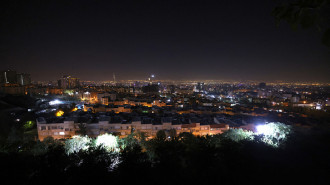Turkey begins laying Black Sea natural gas pipeline
Turkey's president hailed on Monday the start of the construction of an underwater pipeline to tap a Black Sea natural gas field that the government hopes will help wean the country off its dependence on energy imports.
President Recep Tayyip Erdogan watched via video link as the first pipeline section was laid and connected to the seabed from the port of Filyos, around 400 kilometres (250 miles) east of Istanbul on the Black Sea coast.
He said the Sakarya gas field could produce 10 million cubic metres (353 million cubic feet) by the first quarter of 2023.
The Sakarya gas field, 170 kilometres out to sea, was discovered in August 2020.
At the time, Erdogan described it as "the largest natural gas field in Turkey's history", citing estimated reserves of 320 billion cubic metres.
"The Sakarya field will hopefully reach its peak production in 2026," Erdogan said on Monday.
"We will continue our efforts until we can fully ensure our energy security," he added.
Turkey is still highly dependent on imports to cover its energy needs and is paying a high price, especially following Russia's invasion of Ukraine.
Last year 45 percent of the gas used in Turkey came from Russia, and the rest from Iran and Azerbaijan.
Inflation in the country is running at 73.5 percent, a rate not seen since 1998, and the currency is in free fall - making the cost of living hard to bear for most Turks.
Turkey's annual gas consumption has risen from 48 billion cubic metres in 2020 to 60 billion in 2021 and is expected to reach 62-63 billion this year, according to official figures.

![Palestinians mourned the victims of an Israeli strike on Deir al-Balah [Getty]](/sites/default/files/styles/image_684x385/public/2024-11/GettyImages-2182362043.jpg?h=199d8c1f&itok=xSHZFbmc)


![The law could be enforced against teachers without prior notice [Getty]](/sites/default/files/styles/image_684x385/public/2178740715.jpeg?h=a5f2f23a&itok=hnqrCS4x)
 Follow the Middle East's top stories in English at The New Arab on Google News
Follow the Middle East's top stories in English at The New Arab on Google News
![Thousands of people have fled from Lebanon to Syria as a result of Israel's war [Getty]](/sites/default/files/styles/image_330x185/public/2024-11/GettyImages-2180619380.jpg?h=199d8c1f&itok=q4PK1BtW)

![Anwar Ibrahim (centre) said that Malaysia would support the Palestinian people against Israel's genocide [Getty]](/sites/default/files/styles/image_330x185/public/2024-11/GettyImages-1742690206.jpg?h=69f2b9d0&itok=ZYgNyRPM)